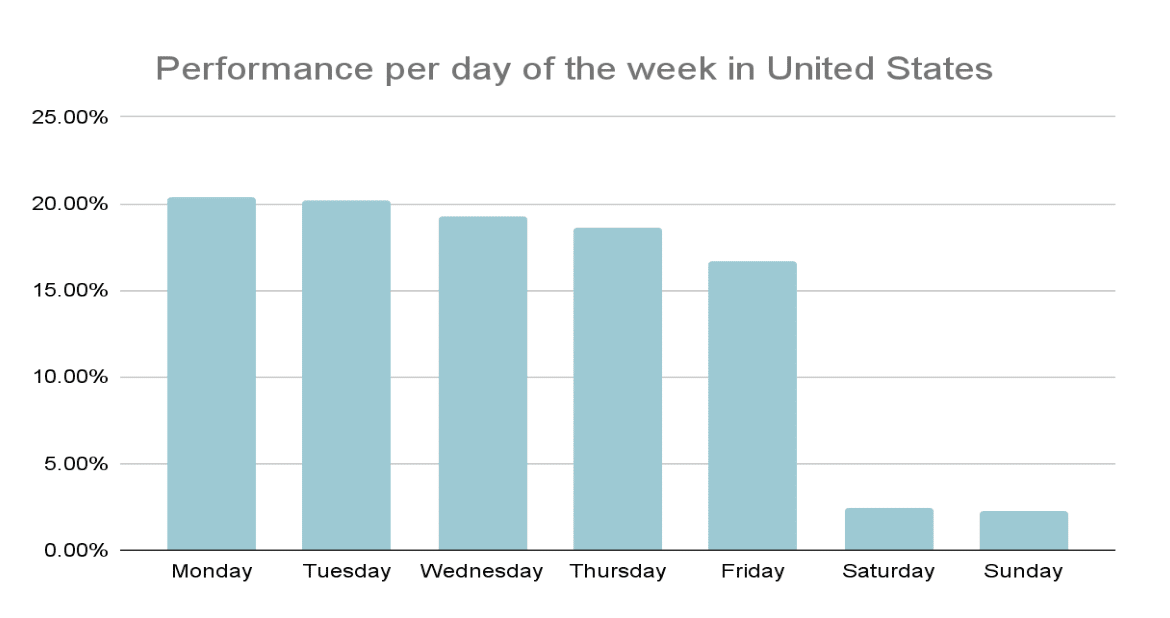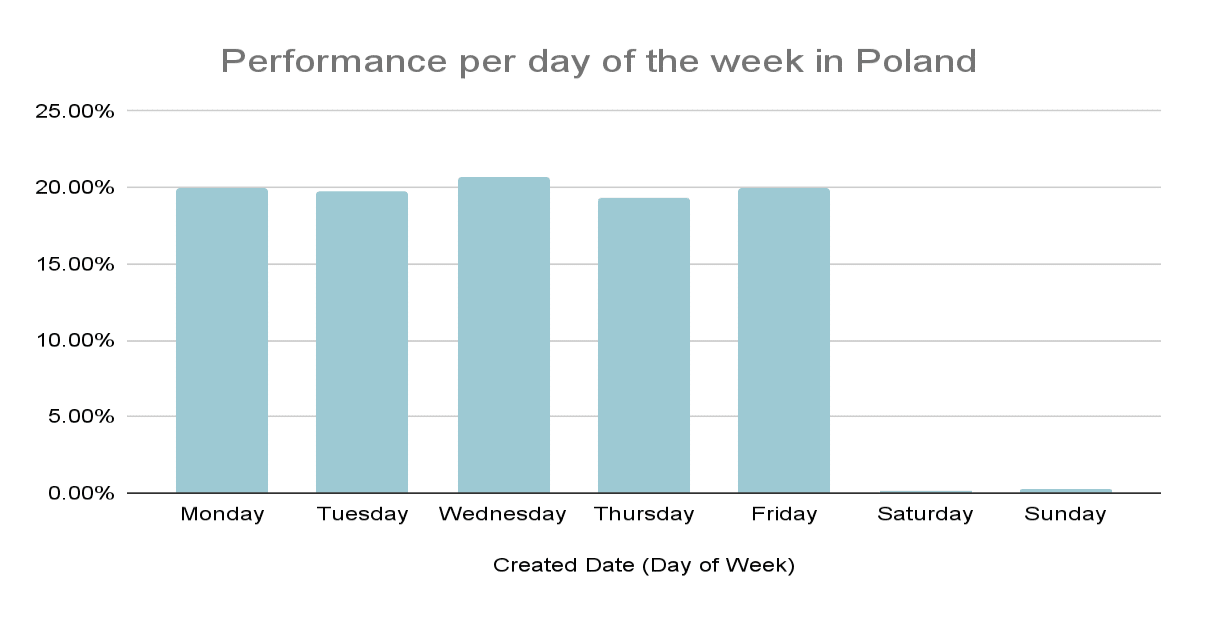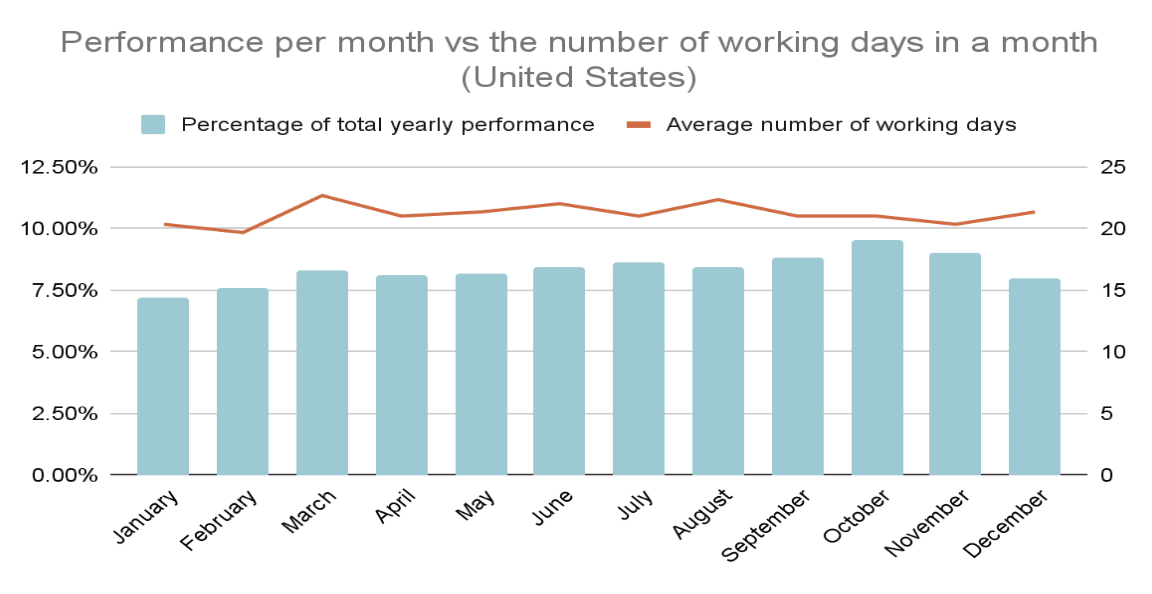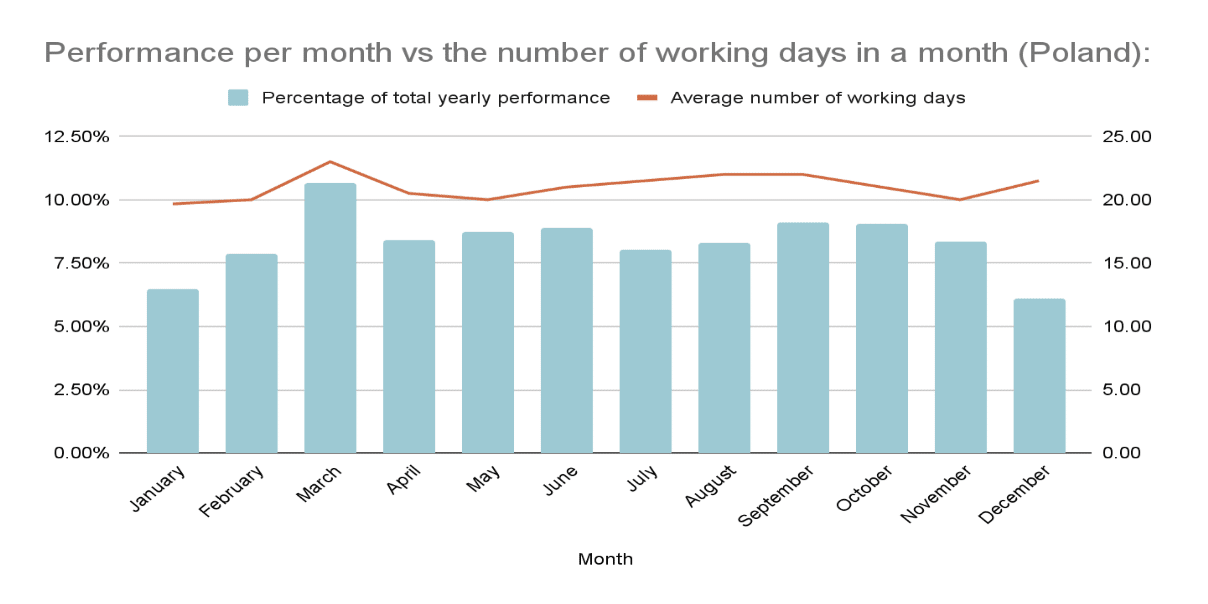For many companies, the value of a team is correlated with its productivity. Teams work hard to perform at their highest level, and we’re interested in learning more about their productivity and how it evolves.
Let’s take a closer look at the performance of companies and teams throughout the year. How is the IT market in Poland different from the one in the US?
In a nutshell we will look at:
- Differences in team performance during a week
- How is monthly performance related to the number of working days
- Productivity changes in the IT market over the course of the year
Weekly performance in the US vs. Poland
While the US and Poland have different levels of IT industry maturity, both countries have highly skilled workforces and are known for producing innovative technology solutions.
Let’s look at the team performance of US and Polish companies during the week. IT companies in Poland tend to show almost stable performance during working days. From Monday to Friday, the average performance is around 20%. Most of the tasks tend to be completed on Wednesday (20.66%). The data indicates that productivity drops to roughly 0.4% over the weekend.

The weekly performance of IT companies in the US is slightly different. The data demonstrate a drop in performance in the last days of the week. The highest Monday productivity, 20.4%, decreases to 16.7% on Friday. Weekends show a distinct contrast, with the US market performing over 5% of weekly work compared to 0.4% in Poland.

Trends in monthly performance throughout the year
Let’s have a look at the monthly performance per year. In the US market, there is no association between the number of working days and monthly performance.
The Polish market, on the other hand, exhibits some predictability based on prior charts and a consistent level of performance each day of the week. An average of 8.3% of yearly tasks are finished in a month in the US, which suggests that performance is consistent throughout the year.
The Polish market has a wider productivity range – it fluctuates between 6% in December and approximately 11% in March.

Additionally, according to American data, performance tends to rise in the fourth quarter of the year, particularly in October and November, as people push themselves to reach their yearly goals. The holiday season in Poland and the winter and Christmas school break from December to February are what generate the most noticeable changes there.

Productivity in the US and Polish markets
Finally, let’s look at the yearly productivity patterns in each market. The data is based on the number of pull requests in companies each month on GitHub*. Given that many IT businesses and software engineers use it, we can presume that it is useful for displaying the amount of work that has been completed.

January has the lowest level of productivity among businesses. This may be difficult to explain, as we all want the start of the year to be the best it can be. There are two possible causes for poor results. First, there is employee attrition, as many employees change jobs after receiving yearly bonuses, and corporations set new targets and goals at the start of the year and then try to accomplish them in the following months.
The final quarter of the year is the most productive, accounting for almost 28% of all yearly pull requests. This time, a simple explanation can be provided for why production has increased. It is an effort to reach the yearly goals in both the US and Polish markets.
There are some general trends that may impact team productivity throughout the year:
- Seasonal factors
- Vacation time
- Year-end pressure
- Company culture
Highlights
The IT industry in the US and Poland both have their own unique characteristics and differences. A more detailed review of the productivity trends in US and Polish companies reveals some differences, as well as similarities. Generally speaking, January is the least productive month of the year, and the latter quarter is the most fruitful.
The underlying causes of the poor January performance are different in these two markets. While the Polish market’s decline is caused by the winter holiday season, the US market’s performance dip may be related to personnel attrition and new targets.
Additionally, the performance illustrates the planning cycles – the beginning of the year is spent setting goals, and the remainder of the year is spent achieving them.
How about your team or company? Do the months with extra days off have an impact on productivity?
Let us know in comment below or feel free to get in touch with us.





